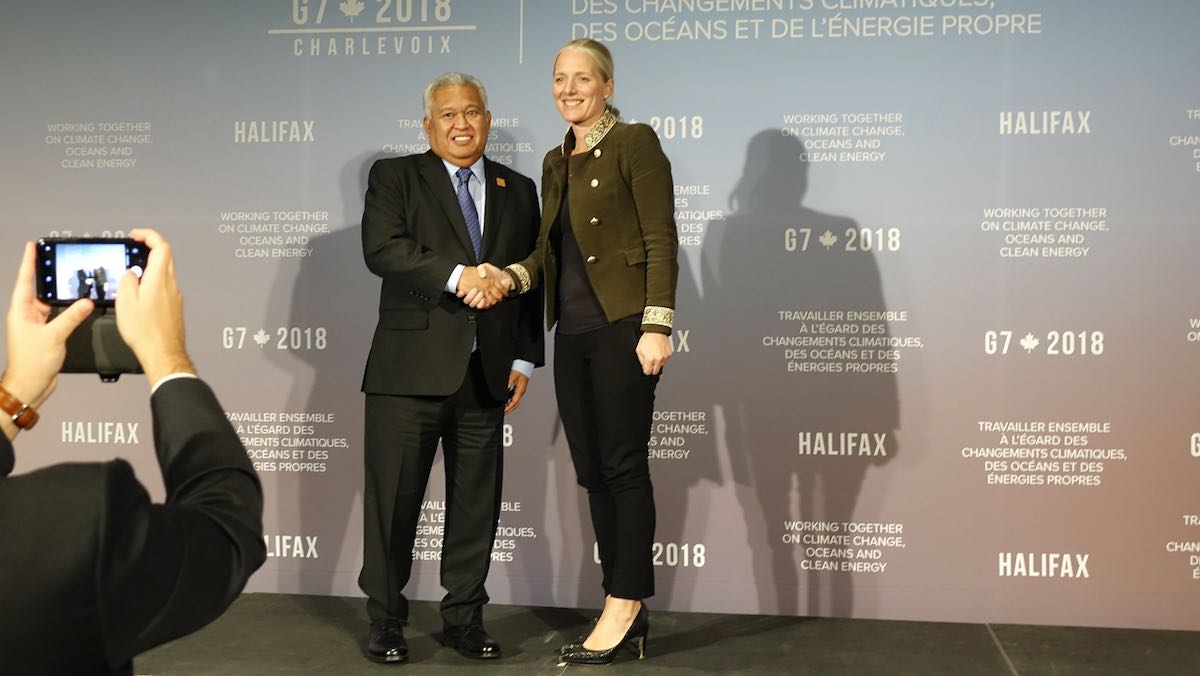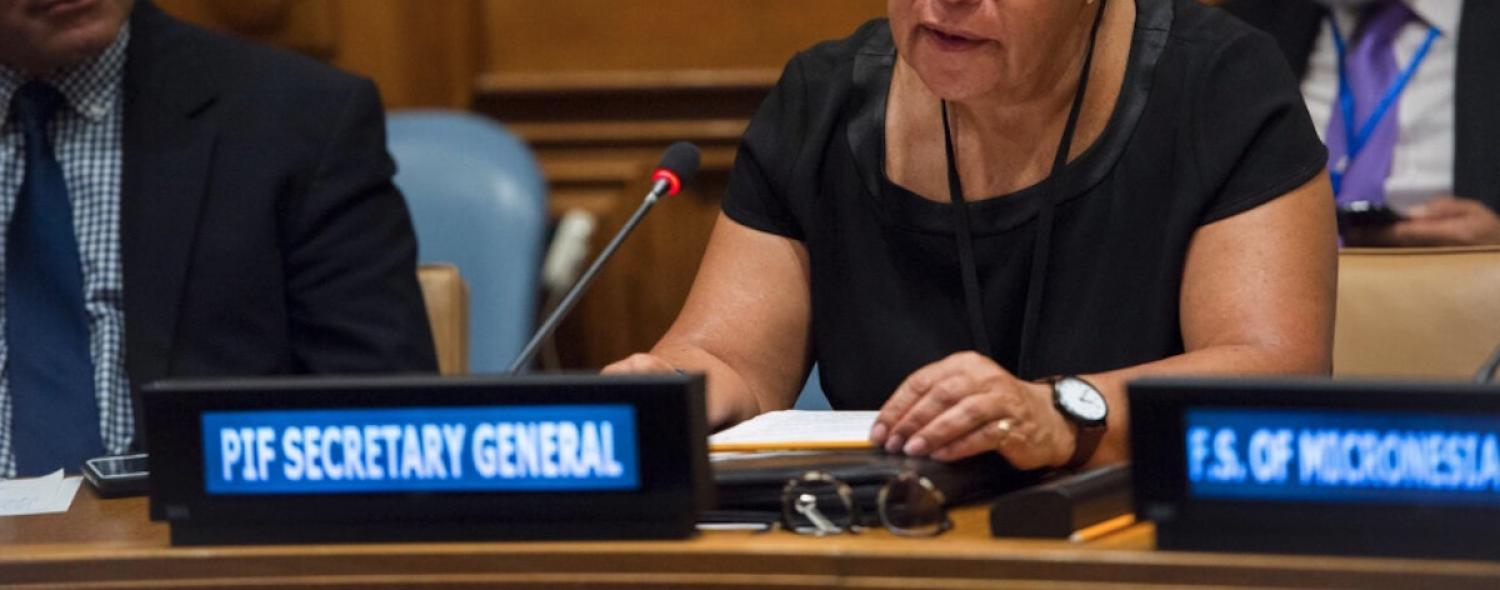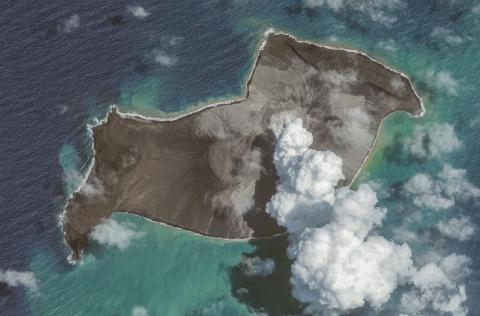Next Wednesday, 3 February, leaders from 18 Pacific states and territories will convene online for a Pacific Islands Forum “Special” Leaders Retreat. The agenda is a brief one – to appoint a new Secretary General of the Forum to replace the formidable Dame Meg Taylor, whose six-year tenure expired in January.
The role is one of the most coveted and important positions in the Pacific. The Secretary General is both the chief bureaucrat and diplomat, with oversight spanning across all Pacific regional organisations as Chair of the Council of Regional Organisations in the Pacific. The Secretary General has responsibility for both enhancing Pacific regionalism and advocating for the Pacific on a global stage, reporting directly to the leaders of Forum members, and is also entitled to a seat at the table during regional negotiations.
What should make for a quick meeting has been complicated by a number of issues that have the potential to open schisms in the region that may take years to repair.
The first is the field of candidates. An unwritten rule is that leadership of the Forum moves between the three sub-regions of Melanesia, Micronesia and Polynesia. The only exception to this has been when Australian diplomat Greg Urwin served as Secretary General from 2004 to 2008. It is very irregular for multiple candidates to emerge, for those candidates to be drawn from different Pacific sub-regions, and for the rival candidacies to persist throughout the gauntlet of formal and informal face-to-face discussions leading up to candidates being nominated and selected.
Whatever the outcome, there is likely to be bruised egos and injured national pride among the Forum’s members.
This year tradition has been cast aside. There are five candidates in the running with each of the sub-regions backing candidates.
Micronesia expected to be given a clear run in the sub-regional rotation, and its five members have coalesced around former minister and current UN ambassador Gerald Zackios of the Marshall Islands as their candidate. But Zackios must now contend with unprecedented rival candidacies: from Polynesia, the Cook Islands former prime minister Henry Puna and international civil servant Amelia Kinahoi Siamomua from Tonga. And from Melanesia – which has just had PNG’s Dame Meg Taylor as Secretary General – there are two additional names: Fiji’s former foreign minister Ratu Inoke Kubuabola and the former director general of the Pacific Community Jimmie Rodgers from Solomon Islands, running for a second time.
There is no precedent for such a diverse and distinguished field being nominated for the position. Whatever the outcome, there is likely to be bruised egos and injured national pride among the Forum’s members.

The second challenge is logistics. For 50 years, the Forum Leaders’ Meeting has been held in person. Face-to-face discussions between leaders have defused disagreements and forged consensus on issues as broad as security, climate change, fisheries, sustainable development and, of course, the appointment of a Secretary General. As regional analyst Nic Maclellan notes, a prime ministerial circuit-breaker in 2014 allowed PNG’s Peter O’Neill and Solomon Islands’ Gordon Darcy Lilo to resolve a stalemate over their respective candidates in Dame Meg and Jimmie Rodgers. No one knows how such sensitivities, combined with risks around internet bandwidth and connectivity, will be managed in the age of closed borders and Zoom.
Other considerations will also need to be managed. If one of the male candidates wins out, then all members of the senior leadership team at the Forum Secretariat will be men. This will be a significant departure from just five years ago, when half of the senior executive positions, including both Deputies and the Secretary General, were occupied by women.
Further complicating the Micronesian bid is the appointment in May last year of Marshall Islands’ Filimon Manoni as Deputy Secretary General. While some Micronesian leaders have already threatened to leave the Forum if their candidate isn’t chosen, it would be unprecedented to have the two senior leadership positions of the Forum occupied by nationals of the one country.
Having a Fijian candidate in the mix, often absent from nominating altogether* as a result of the Secretariat being hosted in Suva and so shortly after Fiji re-established formal ties with the Forum, will also have to be deftly managed.
There is certainly no shortage of challenges facing the leaders as they convene on Wednesday to discuss – and hopefully agree on – the next Secretary General. If tradition and consensus can transcend the disrupted digital gathering, then Zackios would seem most likely to win.
Whoever succeeds Dame Meg will have big shoes to fill – and an array of challenges of their own. These include maintaining relevance as member nations have turned inwards and regional meetings have been temporarily abandoned during the pandemic. It also involves determining what role the Forum has as a coordinator and norm-setter in responding to Covid-19. There is continuing need to advocate for the region in the fight against climate change, getting regionalism back on track without travel, and managing a growing number of more assertive geopolitical actors. Then there is carrying forward the unfinished projects of Dame Meg’s tenure, such as the Blue Pacific agenda and the Pacific Resilience Fund.
There is no shortage of work for the incoming Secretary General to focus on, all while trying to maintain regional harmony and consensus.
Considering the task at hand, it’s a wonder anyone would want the job at all.
* This sentence was updated following publication to acknowledge Fiji’s previous nominations, thanks reader Wesley for pointing this out.


